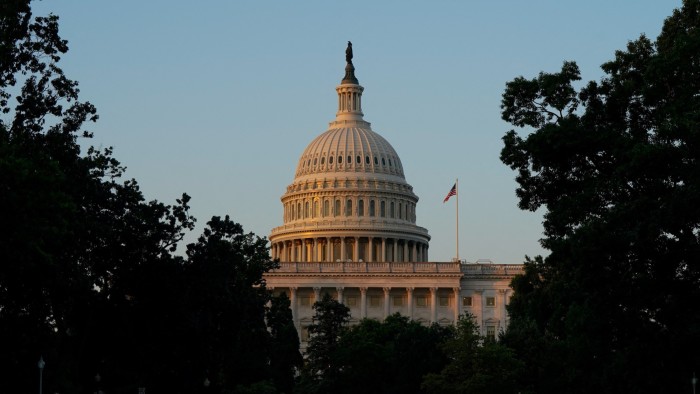Unlock the White House Watch newsletter for free
Your guide to what Trump’s second term means for Washington, business and the world
Donald Trump’s landmark tax and spending legislation moved a step closer to becoming law on Tuesday after the US Senate ended days of haggling and narrowly passed the so-called big, beautiful bill.
The bill’s passage through Congress’s upper chamber now leaves its fate in the hands of the House of Representatives, where it could still face considerable opposition.
The Senate approved the sweeping legislation after vice-president JD Vance was forced to cast the tiebreaking vote. Senators had been split, 50-50, on the measure, with a critical number of Republicans voicing concerns about the size and scope of the bill.
In the end, all but three Republican senators — Rand Paul of Kentucky, North Carolina’s Thom Tillis and Susan Collins of Maine — voted in favour of the bill, while all Senate Democrats voted against it.
The “big, beautiful bill” would fund an extension of sweeping tax cuts introduced in the president’s first term by cutting spending on healthcare and social welfare programmes.
It would also increase spending on the military and border security, and scrap taxes on tips and overtime.
But the legislation still faces significant hurdles if it is to be signed into law by Trump’s self-imposed deadline of July 4.
House of Representatives Speaker Mike Johnson will walk a political tightrope to secure the votes needed from his fractious Republican party and send the legislation to the president by the end of the week.
While an earlier version of the bill passed the House by a single vote in May, several House members have taken issue with the Senate version. Fiscal hawks have said the Senate bill adds an unsustainable amount to the government’s growing debt pile.
More moderate House members have criticised the bill’s cuts to Medicaid, which provides healthcare to low-income and disabled Americans.
Independent forecasters have warned that the legislation will add to the country’s already swollen debt levels, with the non-partisan Congressional Budget Office estimating that the Senate version of the bill would increase the deficit by $3.3tn over the next decade.
But many Republicans have criticised the watchdog’s record, while the White House argues the legislation will ultimately narrow the deficit through fostering growth.
This is a developing story



